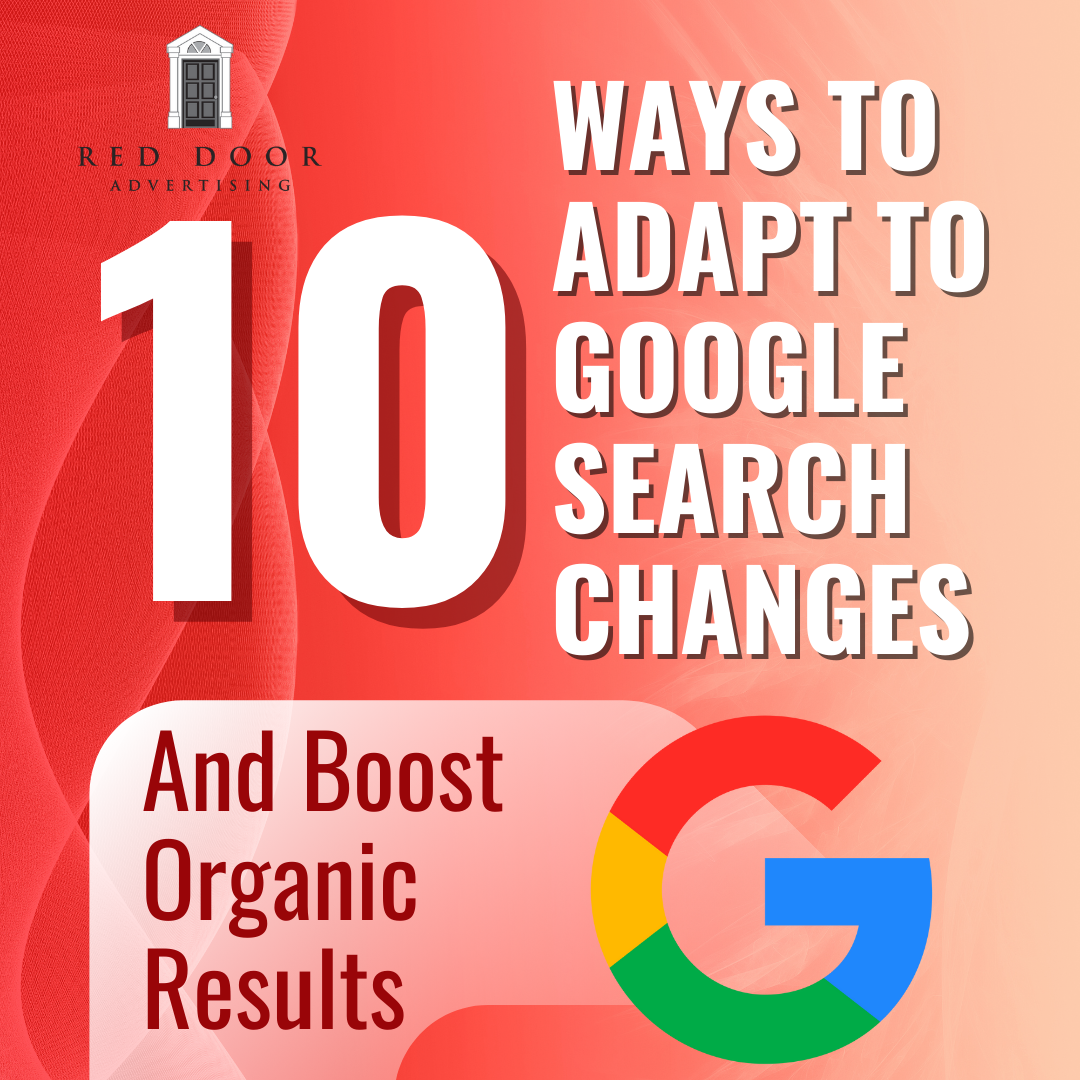
28 Feb 10 Ways to Adapt to Google Search Changes & Boost Organic Results
Google’s search algorithms have undergone significant changes over the years, impacting the way websites rank and how users interact with search engine results pages (SERPs).
With updates aimed at improving user experience, providing relevant content, and combating spam, businesses and digital marketers must adapt their strategies to maintain visibility in organic search results. Here are 10 ways these changes are reshaping SEO, organic traffic, and content marketing—and how you can adapt your business for success.
1. AI-Driven Algorithms and RankBrain
Google’s AI-driven algorithm, RankBrain, plays a crucial role in interpreting search queries and ranking pages based on user intent rather than just keywords. As machine learning improves, RankBrain prioritizes content that provides real value to users, making high-quality, engaging content essential for SEO success.
What can your business do to perform better?
Ensure your website doesn’t rely solely on keyword stuffing or outdated SEO techniques as you may see a decline in your rankings.
2. Core Web Vitals and Page Experience Update
Google’s emphasis on user experience has led to the introduction of Core Web Vitals, a set of metrics that measure page speed, responsiveness, and visual stability. Websites that fail to meet these performance standards may experience ranking drops.
What can your business do to perform better?
Optimize your website speed, mobile responsiveness, and overall usability to remain competitive in organic search results.
3. The Rise of Featured Snippets and Zero-Click Searches
Featured snippets, knowledge panels, and other SERP features are becoming more prevalent, often providing answers directly on Google’s results page. While this enhances user experience, it reduces click-through rates (CTR) to actual websites.
What can your business do to perform better?
Optimize your content for featured snippets by providing concise, structured answers to commonly searched questions.
4. Mobile-First Indexing and Its Impact
With most searches happening on mobile devices, Google has shifted to mobile-first indexing, meaning it primarily uses the mobile version of a website for ranking. Websites that are not mobile-friendly or have poor mobile usability risk losing visibility in search results.
What can your business do to perform better?
Understand that responsive design and mobile optimization are now critical components of SEO strategies.
5. Passage Indexing for Better Content Discovery
Google’s passage indexing allows the search engine to rank specific sections of a webpage rather than just the entire page. This benefits long-form content, as well-structured and informative sections can rank for relevant queries even if the rest of the page is not fully optimized.
What can your business do to perform better?
As a content creator, make sure your articles are well-organized, with clear headings and relevant information throughout.
6. E-A-T (Expertise, Authoritativeness, Trustworthiness) and Content Credibility
Google continues to emphasize the importance of E-A-T, particularly for websites in industries like healthcare, finance, and law. Authoritative and credible content is favored over poorly researched or misleading information.
What can your business do to perform better?
Establish yourself as an industry leader by publishing well-researched, fact-checked content and showcasing author credentials where applicable.
7. The Growing Influence of Video Content
Google is prioritizing video content in search results, often displaying YouTube videos for relevant queries.
What can your business do to perform better?
Consider incorporating video into your SEO strategy by optimizing video descriptions, using relevant keywords, and creating engaging content that complements your written materials. Video transcripts can also improve accessibility and search visibility.
8. Local SEO and the Importance of Google My Business
With the rise of local searches, optimizing for local SEO has become more important than ever. Google My Business (GMB) listings play a crucial role in helping businesses appear in local search results.
What can your business do to perform better?
To improve visibility in geographic-based searches, maintain an updated GMB profile, encourage customer reviews, and optimize local keywords.
9. The Impact of Spam and Algorithm Penalties
Google continuously updates its algorithms to combat spam and manipulative SEO tactics. Websites engaging in black-hat techniques, such as keyword stuffing, link schemes, and low-quality content, may face penalties that significantly reduce their rankings.
What can your business do to perform better?
Focusing on ethical SEO practices, high-quality backlinks, and valuable content remains the best long-term strategy for maintaining search visibility.
10. The Future of Search: AI and Voice Search Optimization
As AI and voice search technology advance, search queries are becoming more conversational. Businesses must adapt their content to align with natural language processing (NLP) and long-tail keyword strategies.
What can your business do to perform better?
Optimize for voice search which involves answering questions concisely, structuring content for readability, and leveraging FAQ-style formats to match spoken search queries.
Google’s continuous updates are reshaping organic search results, making it essential for businesses and marketers to adapt. By focusing on user experience, mobile optimization, content credibility, and emerging search trends, your business can maintain and even improve your organic search rankings. Staying informed about algorithm changes and evolving SEO best practices will be key to your long-term digital success.
For more information on building an effective advertising strategy utilizing the most up-to-date SEO trends, contact us at randi@reddooradvertising.com or brendan@reddooradvertising.com or visit https://reddooradvertising.com/.


